Following Scottish politics this year has been even harder than normal for those who care deeply about the future of the planet.
Abandoned Scottish Government emissions targets have left green groups like Sustainable Kirriemuir, a fixture in the Angus town, questioning the government’s priorities when it comes to the climate crisis.
Prime Minister Rishi Sunak has also been accused of watering down the UK Government’s key environmental policies and targets.
Members of Sustainable Kirriemuir and Sustainable Cupar remain determined to fight climate change at the community level.
Amandla Taylor is from Sustainable Kirriemuir.
“The hope is that the more small interventions we do, the more people understand the situation that we are in,” she says.
“The government is backing down on its targets and we can’t really do that much about it. It’s such a vast, huge problem.
“We’ve just got to focus on what what we’re doing in the local area.”
Rebuilding ‘community connections’ to fight climate change
Climate change has recently hit Angus hard.
In October 2023, severe floods impacted the daily lives of many of Kirriemuir’s 6,000-odd residents.
But the worst hit town in the area was Brechin – 16 miles from Kirriemuir – with many flooded homes still uninhabitable six months later.
Amandla is the project manager for Sustainable Kirriemuir and is speaking to me on behalf of the group.
I meet the Fintry native on a cloudless day at a peaceful two-acre community garden beside St Mary’s Episcopal Church in Kirriemuir.
This is the group’s main site for growing at the moment.
We sweat in 20 degree heat as we discuss what happened in Angus when Storm Babet raged in October.
“It did predominantly affect poor people and it had such a big effect,” she says.
“This is the start and it’s just going to get progressively worse. It’s thinking about how we can support these people.”
The flooding also cut off Kirriemuir from the east for a time and affected the local golf course.
Amandla says she experienced a strong sense of community when she was growing up in the Fintry area of Dundee during the 1980s and 1990s.
She believes this could be key to tackling future climate change issues.
“People have lost their communities and it’s really important for us in Kirriemuir to rebuild those connections,” says Amandla.
“There are lots of people who have become involved in the project because something happened to them.
“For a lot of people it was almost as if the climate crisis was happening somewhere else.
“But when houses are getting flooded in Kirriemuir and people are getting cut-off, then it has really hit home.”
What is the Sustainable Kirriemuir group doing?
Sustainable Kirriemuir was founded in September 2019 and is mostly run by volunteers.
The charity organises a range of community events through funding from the Climate Challenge Fund and the National Lottery Community Fund.
One of the highlights of its calendar of events is Kirriemuir Tattie Day, which saw around 600 attendees flock to Kirriemuir town hall in February.
This second edition of the event provided an opportunity for the group to showcase its e-bike fleet, which has proved a hit with local people.
The group also has gardens in two primary schools and at Webster’s High School.
It has formed a partnership with the nearby Kinnordy Estate and is expecting to receive 20 acres of land to start a farm.
“That’s the amount of food we are producing because the government is not doing enough”, explains Amandla.
“Angus has been really badly hit by flash floods, so we’re thinking about how that is going to affect the food system.
“We are going to try and grow more food for the local area. There’s an expectation that if something goes wrong on the farm then the community [will] absorb that as well.
“It is to bridge people’s knowledge about the climate crisis as well, so people understand that our food system is really fragile.”
Members of Sustainable Kirriemuir are hoping to provide opportunities to produce cereals and grains on the farm, while also considering chickens and some livestock.
“People will come to the farm and pick up their produce. It’s got that whole circular loop of people knowing where their food is coming from,” adds Amandla.
“It’s about letting people know how much it costs to produce food as well.”
Sustainable Kirriemuir aims for inclusive approach
In his October 2023 speech Rishi Sunak told the British public that he was taking a more “pragmatic, proportionate and realistic approach to meeting net zero”.
It often seems like there is a constant conflict between priorities when it comes to climate change.
This is reflected in how people lives their lives, with getting by during a cost-of-living crisis understandably the priority.
“We want to support people who are on low incomes as well,” says Amandla.
“People have got a lot of very difficult things going on in their lives, like the cost-of-living crisis.
“If you’re struggling to eat then the main priority is going to be the cost of food.”
“We understand that this is a commuter town. A lot of people live here, but they might work in Dundee, Forfar or further afield.
“We know the infrastructure is not there for people to cycle. It’s a bit about [focusing on] short journeys – and people’s health and wellbeing.”
Sustainable Cupar fighting climate change in Fife
The health and wellbeing mission statement is one that is echoed on other the other side of the Tay Bridge in Cupar, Fife.
Sustainable Cupar was established in 2009 and has built a membership of around 300 in a town of around 14,000 people.
The group is motivated by a bid to increase awareness of environmental issues in the north-east Fife town.
It has different sub-groups which focus on fruit growing, town development, sustainable travel and sustainable energy.
Members have a community orchard in the town and its Orchard Walk provides visitors with opportunities to see wildlife, such as otters and kingfisher birds.
Sarah Davidson is the chairperson of the charitable organisation and believes “not enough is happening” when it comes to fighting climate change.
“There is not enough of a swing and the rate of travel is too slow,” she says.
“We are just trying to do something about it. People don’t talk about things when they don’t know what to do about it.
“Most people are affected by it [climate change] now. You can’t not be affected by it.
“We are coming up with solutions that have come out of the community.”
Cupar volunteers ‘feel as if they are really doing something’
Cupar is also located in an area that has experienced the damaging results of flooding, most recently during Storm Gerrit in December.
This is one of the barriers in Sustainable Cupar’s way as it pushes for a ‘red route’ active travel corridor, with part of that planned for over the River Eden.
The group hopes the route will make it safer for cyclists and walkers to cross Cupar’s congested town centre.
It could also make it easier for pupils to travel to Bell Baxter High School and Castlehill Primary School, while also providing alternatives to travelling by car.
Another Sustainable Cupar volunteer and trustee who is heavily involved with the group is Mary-Ellen Robertson.
“People within the group like to do practical things to feel as if they’re achieving something,” she says.
“Stuff like planting trees, wildflowers, the allotment work we’re doing and the river project. They need to feel happy about what they are doing.
“Once you get your head around what is going on you can’t do nothing because otherwise you’re not being true to yourself.”
Sustainable Cupar is also a lead partner in the River Eden Sustainability Partnership.
It tackles the environmental issues that have affected the river in recent years.
These include a decline in fish numbers, pollution, droughts and the flooding caused by recent severe storms.
The group works alongside the Eden Angling Association, Fife Coast and Countryside Trust, Fife Council and St Andrews University to try to mitigate these issues.
It has also been planting trees along the banks of the Eden in Cupar.
“The river project actually makes me feel as though I’m really doing something”, says Sarah.
What do the groups want to see from the government?
Despite, the missed emissions target for 2030, the Scottish Government has retained its aim to achieve net zero emissions by 2045.
But what do the two groups want to see from the Scottish and UK Governments?
“People feel the need to see a real commitment from their leaders in government,” says Sarah.
“It is the people that create the political space for the politicians to inhabit.”
“People just feel a bit disempowered and they don’t know what to do about it,” adds Sustainable Kirriemuir’s Amandla.
“It’s seen as something only the government can tackle.
“They’re telling people that they need to eat more local food and cycle their bike. But actually you’ve got politicians flying across the world.
“It’s one rule for some and one rule for others. They need to listen more and spend more time at the grassroots of communities meeting people.”
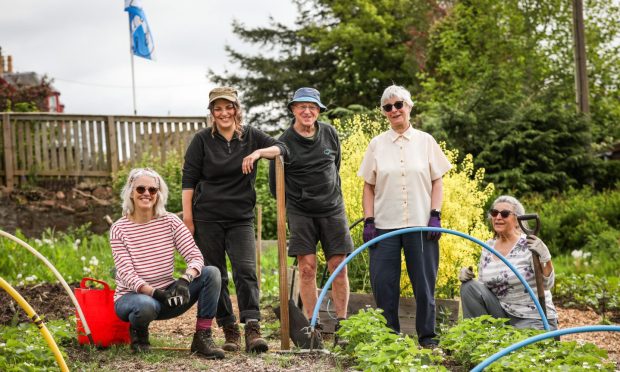
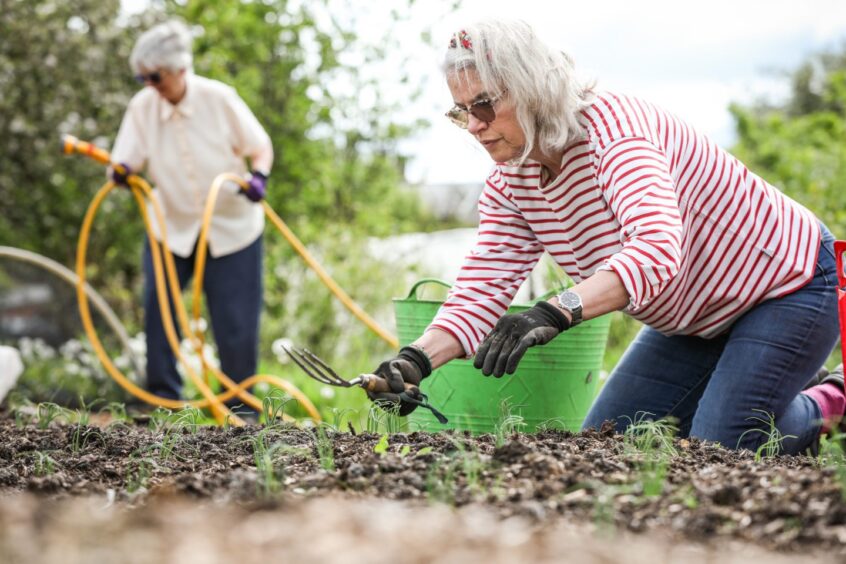
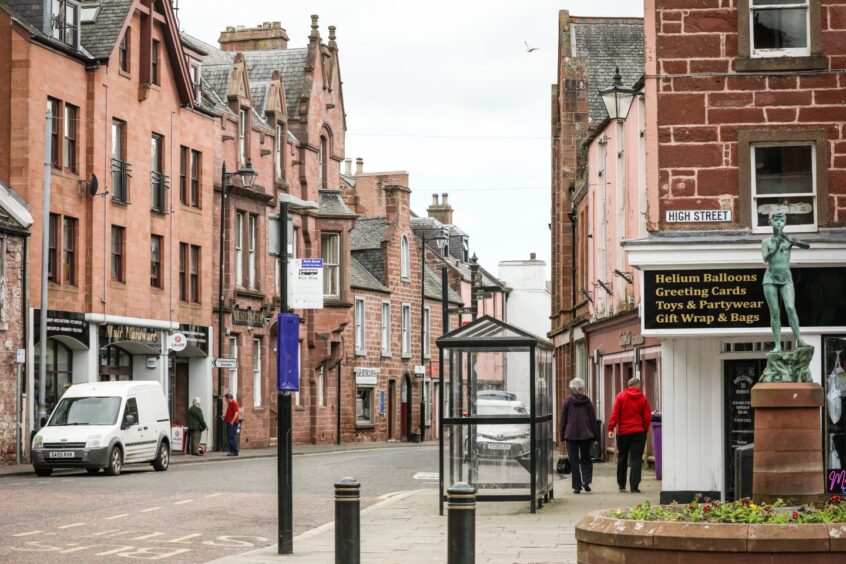
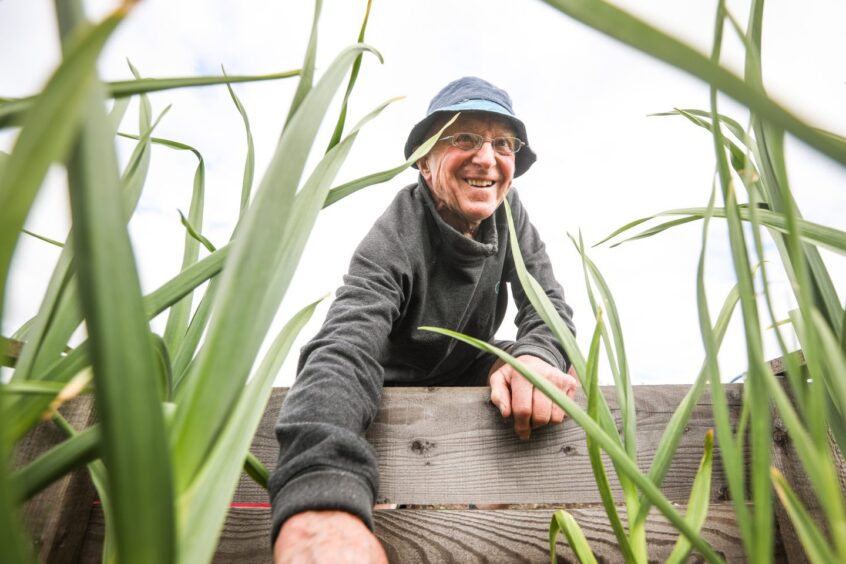
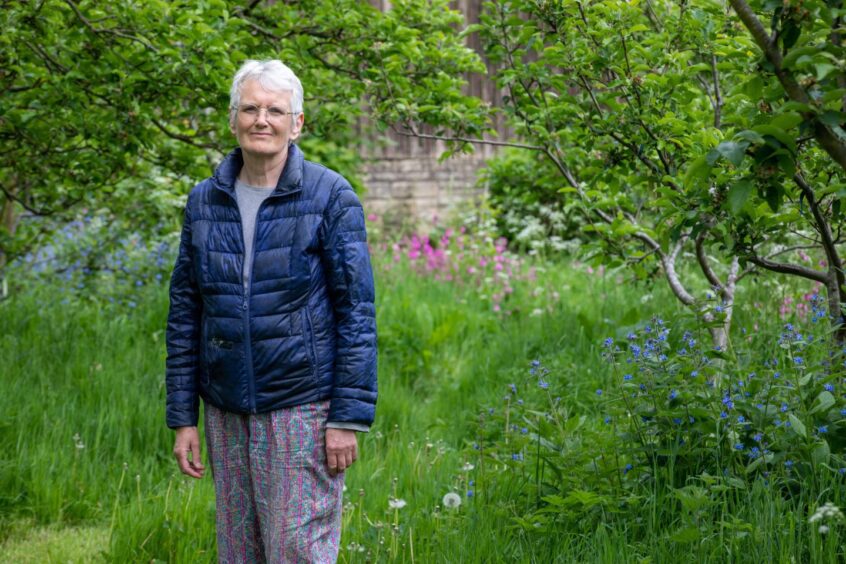
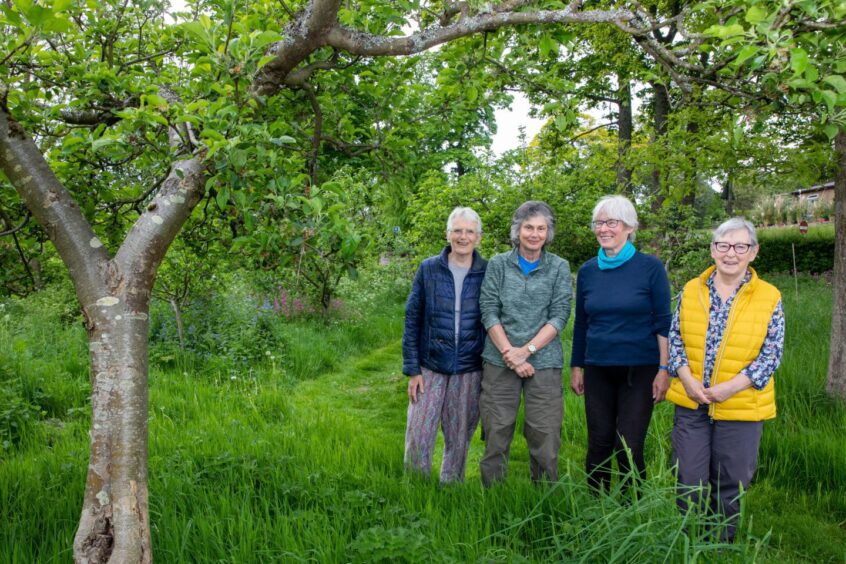










Conversation